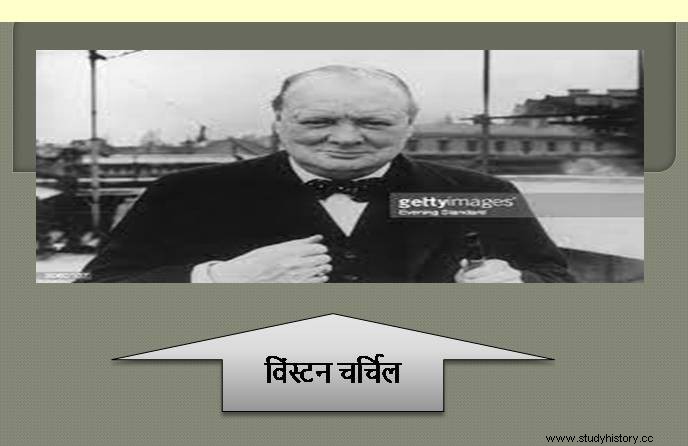
Winston Churchill's name is taken prominently among the great leaders who became famous globally in the twentieth century. He was the Prime Minister of England from 1940 to 1945 and from 1951 to 1955. World War II was fought under his leadership and he was the winner of World War II. At the time when India got independence, he was the Leader of the Opposition in the Parliament of England and was strongly opposed to India's independence and Indian leaders.
He did not hesitate to use harsh words for all Congress leaders including Mohandas Gandhi. When the Interim Government was formed in India and the process of actual transfer of power began, Churchill made a very bitter statement against the Indian leaders. Churchill said- 'Power will go into the hands of rascals, rascals and robbers….. These men are effigies of grass who will not get even a straw after a few years.'
At the time Churchill's statement came, Sardar Patel was ill and in Dehradun. At such a critical time when the bill of Indian independence was to be discussed in the Parliament of England and the cooperation of Leader of Opposition Winston Churchill was absolutely necessary, Indian leaders could not speak anything against Churchill. This indecent speech of Churchill to a self-respecting chieftain could not be tolerated.
They knew that India is not getting power in begging, for this lakhs of Indians have struggled and laid down their lives. Patel was the Deputy Prime Minister in the Interim Government of India. The Interim Government was directly attacked by Churchill. That's why Patel issued a statement from Dehradun on the same day and scolded Churchill and called him 'a shameless imperialist, that too at a time when imperialism is standing at its last stop…….a popular fugitive for whom arrogance and mindlessness' Harmony, logic, thinking are more important than thought and wisdom.'
Along with cursing Churchill, Sardar Patel also challenged the Government of England - 'I would like to tell His Majesty's Government that if they are desirous of making friendly relations between India and Great Britain, then they need to pay special attention to this matter. Care has to be taken that such hideous and poisonous attacks are not made on him and British politicians and others learn to speak about this country with friendship and goodwill.' Sardar Patel's words shook Winston Churchill to the core.
They understood that the wheel of time is spinning fast, if understanding is not shown, then England may have to lose India's friendship. That is why Churchill sent this message to Patel through Foreign Secretary Anthony Hayden - 'I was very happy with Patel's response. Seeing the new dominion handling its functions and responsibilities with this skill, especially in relation to other states, I have nothing but respect and admiration for Patel. Sardar should not confine himself to the boundary wall of India, the whole world needs and has the right to see and hear him.'
